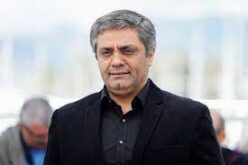Al-Monitor – The office of Iran’s prosecutor-general issued a series of new directives Tuesday to the country’s police to act “decisively” against women who fail to comply with the country’s controversial hijab rules.
The ISNA news agency quoted Deputy Prosecutor-General Abdolsamad Khorramabadi as saying that police will be obliged to arrest and hand over to the judiciary women who remove their headscarves in public. Outlining detailed penalties, he said those women could face detention from 10 days to two months, while other measures were also at the disposal of judges, including a range of bans on work and political activity as well as banishment and confiscation of vehicles.
The new hijab penalties announced by the Iranian judiciary come against a backdrop of unprecedented defiance from women frustrated by decades under the draconian rules. Despite the repressive measures in recent months, an increasing number of them, especially in Tehran, have been going about their public daily lives without their hijabs, not to mention twirling and burning headscarves at protests. Those gestures have triggered calls from regime loyalists for the forceful “return” of headscarves.
The new laws will go even further concerning those found to be “encouraging” lax hijab, landing them up to 10 years in prison for moral “corruption,” according to the deputy prosecutor.
The announcement came less than a week after Supreme Leader Ayatollah Ali Khamenei left many with the impression of some level of reconciliation, noting that women with lax hijab were still “our children” and should not be viewed as opponents of the Islamic Republic.
In December, Prosecutor-General Mohammad Jafar Montazeri caused widespread confusion with his headline-grabbing comment that the Guidance Patrols — also known as morality police — in charge of enforcing hijab had been abolished even as the patrols continued in the capital Tehran and other large cities.
In mid-September in the custody of one of those squads, 22-year-old Mahsa Amini slipped into a coma and died later in a hospital, sparking nationwide protests that have continued since and have rocked the ideological pillars of the Islamic Revolution with calls to overthrow Iran’s 83-year-old leader.
Responding to the protests with brute force, Iranian police and other security organizations have killed at least 519 people, according to rights advocacy groups, while over 19,000 others are estimated to have been put behind bars, the Human Rights Activists News Agency reported. The Khamenei-controlled judiciary has been busy issuing hefty sentences in the protesters’ trials, questioned by rights advocacy groups for their lack of due process and often speedily held in the absence of defense attorneys.
Showing zero tolerance for critics, the Iranian authorities have even targeted prominent figures including actors and athletes for siding with the protesters, arresting some and imposing severe restrictions and bans on others. In the latest incident, Faezeh Hashemei, the daughter of late President Akbar Hashemi Rafsanjani, was sentenced to five years in jail.
Her lawyer Neda Shams announced on Twitter that Hashemi remains incarcerated and is awaiting trial on other charges. Hashemi was arrested late September in east Tehran, where she had been “instigating protests,” according to state media outlets. Years before the current movement for “women, life, freedom,” she was among leading the figures challenging Iran’s mandatory hijab and has been an outspoken critic of Khamenei and the Islamic Revolutionary Guard Corps (IRGC). Most notably last May, her demand that United States keep the IRGC on its list of foreign terrorist organizations drew the fury of hard-liners who called for her immediate prosecution.
 Shabtabnews In this dark night, I have lost my way – Arise from a corner, oh you the star of guidance.
Shabtabnews In this dark night, I have lost my way – Arise from a corner, oh you the star of guidance.



